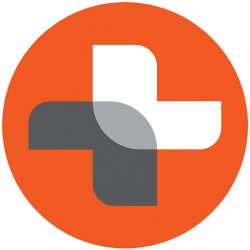What you need to know
If you are a traveller from mainland China or Iran or think you may have been in close contact with a confirmed case of coronavirus, special restrictions apply to you. You must isolate yourself. This means you stay at home and do not attend public places, including work, school, childcare or university. For the latest advice on who needs to isolate, go to www.health.gov.au
While coronavirus is of concern, it is important to remember that most people displaying symptoms such as fever, cough, sore throat or tiredness are likely suffering with a cold or other respiratory illness—not coronavirus.
How can we help prevent the spread of coronavirus?
Practising good hand and sneeze/cough hygiene is the best defence against most viruses. You should:
- Wash your hands frequently with soap and water, before and after eating, and after going to the toilet; cover your cough and sneeze, dispose of tissues, and use alcohol-based hand sanitiser; and if unwell, avoid contact with others (touching, kissing, hugging, and other intimate contact.
How is this coronavirus spread?
The coronavirus is most likely to spread from person-to-person through:
- Direct close contact with a person while they are infectious; close contact with a person with a confirmed infection who coughs or sneezes, or touching objects or surfaces (such as door handles or tables) contaminated from a cough or sneeze from a person with a confirmed infection, and then touching your mouth or face.
- Most infections are only transmitted by people when they have symptoms. These can include fever, a cough, sore throat, tiredness and shortness of breath.
What if I develop symptoms? If you develop symptoms (fever, a cough, sore throat, tiredness or shortness of breath) and fit the risk categories from travel or contact with a confirmed case, you should arrange to see your doctor for urgent assessment. You must telephone the health clinic or hospital before you arrive and tell them your travel history or that you may have been in contact with a potential case of coronavirus. You must remain isolated either in your home or a healthcare setting until public health authorities inform you it is safe for you to return to your usual activities.
Who is most at risk of a serious illness? Some people who are infected may not get sick at all, some will get mild symptoms from which they will recover easily, and others may become very ill, very quickly. The people at most risk of serious infection are:
- People with compromised immune systems, such as people with cancer; elderly people; Aboriginal and Torres Strait Islander people; very young children and babies, and people with diagnosed chronic medical conditions.
How is the virus treated? There is no specific treatment for coronaviruses. Antibiotics are not effective, and most symptoms can be treated with supportive medical care.
Should I wear a face mask? You do not need to wear a mask if you are healthy, while masks can help prevent transmission of disease from infected patients to others, masks are not currently recommended for use by healthy members of the public for infections like coronavirus.
More information.
For the latest advice, information and resources, go to www.health.gov.au or https://www.health.gov.au/resources/collections/novel-coronavirus-2019-ncov-resources
Call the National Coronavirus Health Information Line on 1800 020 080. It operates 24 hours a day, seven days a week. If you require translating or interpreting services, call 131 450.
Information obtained from the Australian Government – Department of Health.


